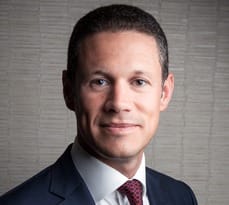The Middle East can be both an attractive and intimidating destination for international businesspeople. While our vibrant culture can help make the experience unique, its influence on business interactions can sometimes create uncertainty for those that are new to it.
Here are 5 common mistakes I see people making when doing business in the Middle East, and some recommendations on how to avoid them:
1
Say it to their face
Business communication in the Middle East is best conducted face-to-face. When this is not possible, as is often the case in cross-border business, it is advisable to at least pick up the phone rather than relying solely on email. Not only is email infamous for creating misunderstandings in multilingual settings, but you may often find e-communications simply left unanswered. In certain countries, such as in Saudi Arabia, locals will rarely do any serious business with their international counterparts remotely, even by phone, so meeting with your partners and associates in person is a must.
2
Don’t get straight down to business
Many aspects of life in the Middle East are influenced by the region’s relationship-based culture. In Arab countries in particular, it is very common for personal friendships and business relationships to overlap more than they do elsewhere. It is therefore important to understand and appreciate this when meeting new people in a business context.
Far from a waste of time, small talk and getting to know each other during meetings is an integral part of forming strong professional relationships. And while getting “straight down to business” might be praised in other parts of the world, to many in the Middle East it could be considered impolite.
3
Have patience
Good things often take time to bear fruit, and so can business decisions in the Middle East – in some cases much longer than in a “Western” business environment. However, impatience will reflect poorly on your character and probably won’t make things happen faster in any case. It is therefore wise to be patient and be prepared to accommodate shifting timelines and business schedules. If you can learn to demonstrate patience and flexibility in even the most challenging of situations, you are likely to reap the rewards of this effort in both your bottom line results as well as your blood pressure.
4
Choose partners wisely
It’s generally recognised, when doing business in any foreign environment, that there can be many benefits of partnering with a local individual or organisation on the ground, as is required by law in certain circumstances. However, it is important to be careful when selecting and working with local partners; if you don’t choose wisely you can find yourself engaged in business marred with misunderstandings and frustrations. It is a good idea to spend time establishing a rapport with potential partners, both personally and professionally, so you can be sure they are people that will add real value and that you can work with effectively, before entering any partnership.
5
Great expectations
For international businesspeople, learning to navigate any new cultural terrain is part and parcel of operating in a globalised world. But by just taking the local culture into consideration, you will more often than not find a business environment that is welcoming of people from all over the world, and a business community that is truly open to exploring new partnership opportunities.
While working with local partners can be challenging for inward investors, conversely foreign partners will often have unreasonable expectations about the amount of leads and orders that local partners will deliver to their business. That can quickly lead to disappointment, disagreement and, ultimately, dissolution. It is important to be realistic about your shared goals and to choose partners on the same criteria that you would in your home market – that is, commercial synergies and the potential for fruitful and productive cooperation, rather than the shallow hope that your local partner might have the right connections or ‘wasta’.
Badr Jafar is an Emirati businessman based in Sharjah. He is CEO of Crescent Enterprises, a member of Cambridge Judge Business School’s Advisory Board and Chairman of the Business School’s Alumni Council. On 14 May he will be introducing the Middle East Leadership Research Centre launch event at the American University of Sharjah, 14 May 2014.


